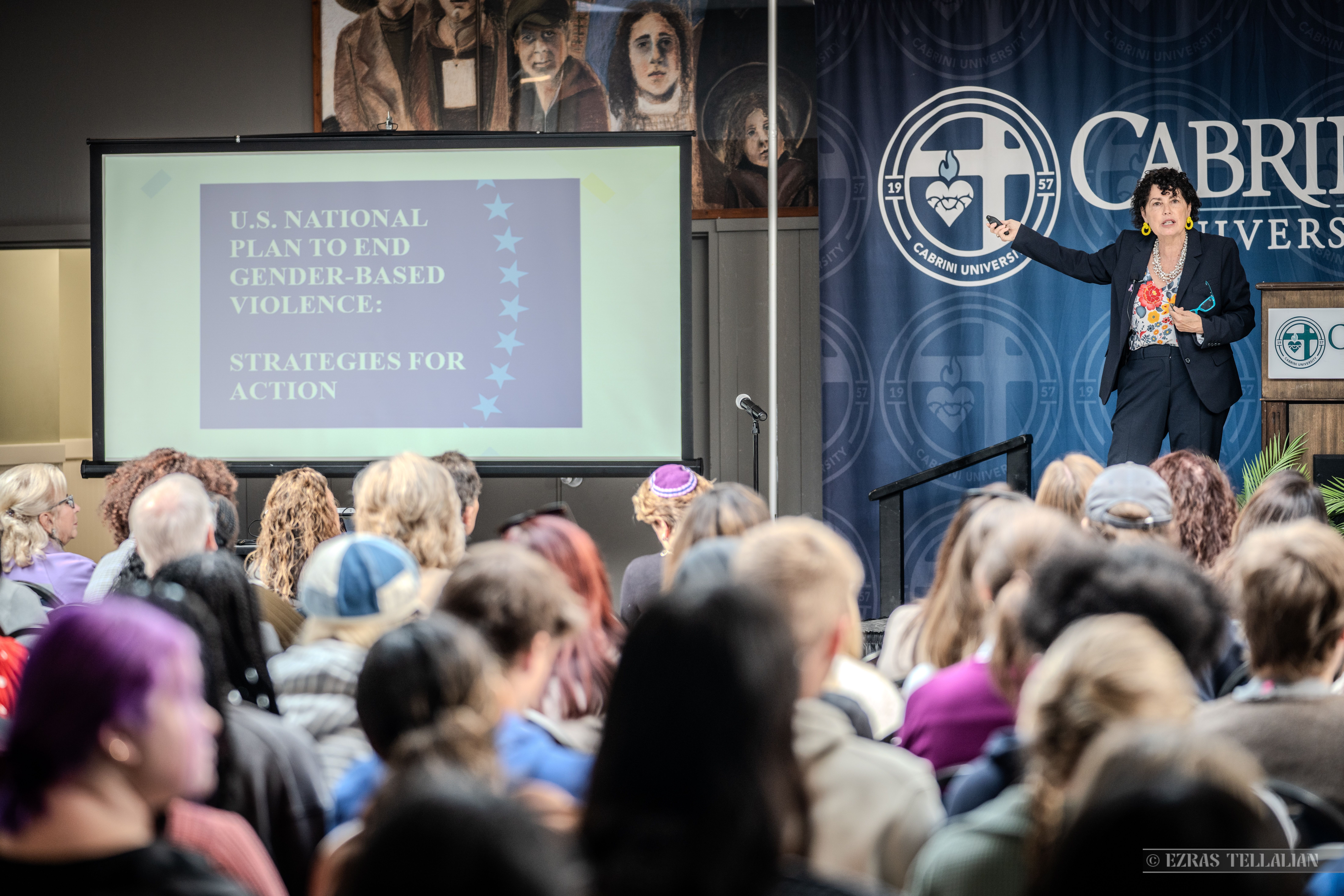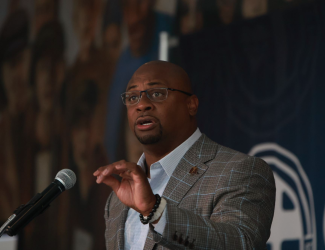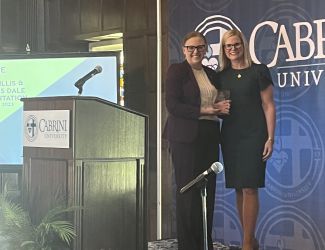Students and faculty filled Grace Hall for the 13th annual domestic violence symposium on Wednesday, Oct. 11.
The symposium, presented by the Barbara and John Jordan Center for Children of Trauma and Domestic Violence Education, featured a keynote address from Lynn Rosenthal, director of Sexual and Gender-Based Violence at the United States Department of Health and Human Services. Montgomery County District Attorney Kevin Steele also gave remarks.
The first symposium was held in 2010, the first of two projects launched from a federal grant. The Jordan Center was founded in October 2017. According to the center’s website, it serves as an educational resource for the public and for professionals working with victims of trauma and domestic violence. It informs teachers about the impact of domestic violence on children and how it can affect their schooling.
The keynote address
In her remarks, Rosenthal began by sharing about her time serving as the first-ever White House Advisor on Violence Against Women, reporting to then-Vice President Joe Biden.
Rosenthal touched on several different topics, including domestic violence prevention, best practices for children, and solutions that are already in use. A key point she made during her address was that the needs of people experiencing domestic violence are not universal, and can be outside of what the general public may expect them to be. She shared a story from her time working at the Florida Coalition Against Domestic Violence, in which she was approached by a woman who was experiencing violence from her husband. The woman had the ability to drive away from the situation, but the tires on her car were worn out. What she needed the most was a new set of tires so she could drive herself and her child away from their abuser.
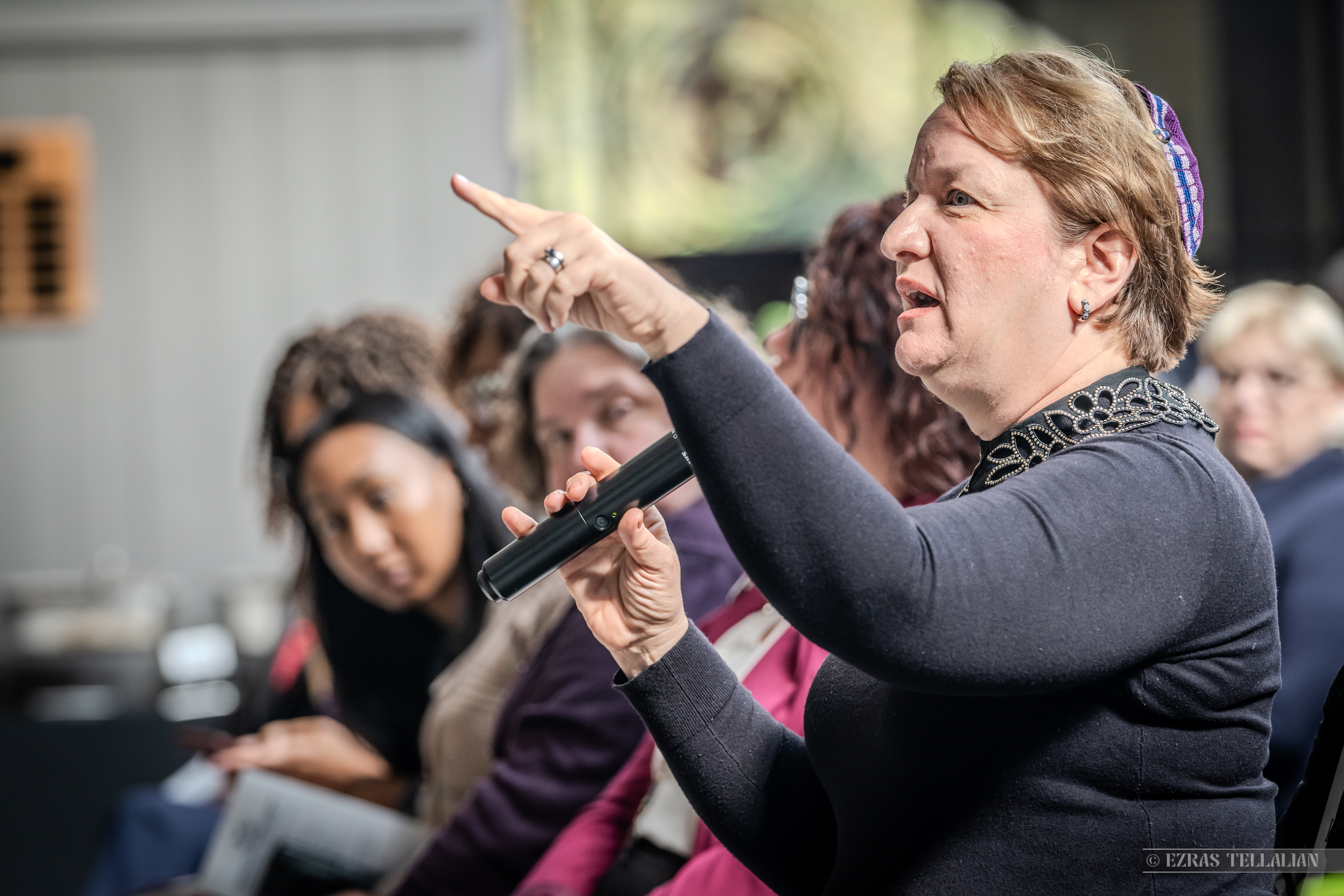
Rosenthal spoke on how the general public can educate themselves on the topic. “Talk to your friends about it. Be an active bystander. If you see something happening, be that person who’s willing to say something about it,” she said. “If you see someone abusing or talking in an abusive way to their partner, be the person who steps in.”
The issue of domestic violence is an important one for college students to learn about. “Abuse can start early. Relationship abuse is an issue for college students,” Rosenthal said. “Understanding healthy relationships and what to do if you’ve experienced something is key. If someone experiences something when they’re young, they’re more likely to experience it again.”
Making an impact
The Jordan Center has played a large role in educating the public about domestic violence. “In the past five years we’ve educated over 7,000 educators, professionals in the health field, business sectors, and non-profit agencies,” Lelli said.
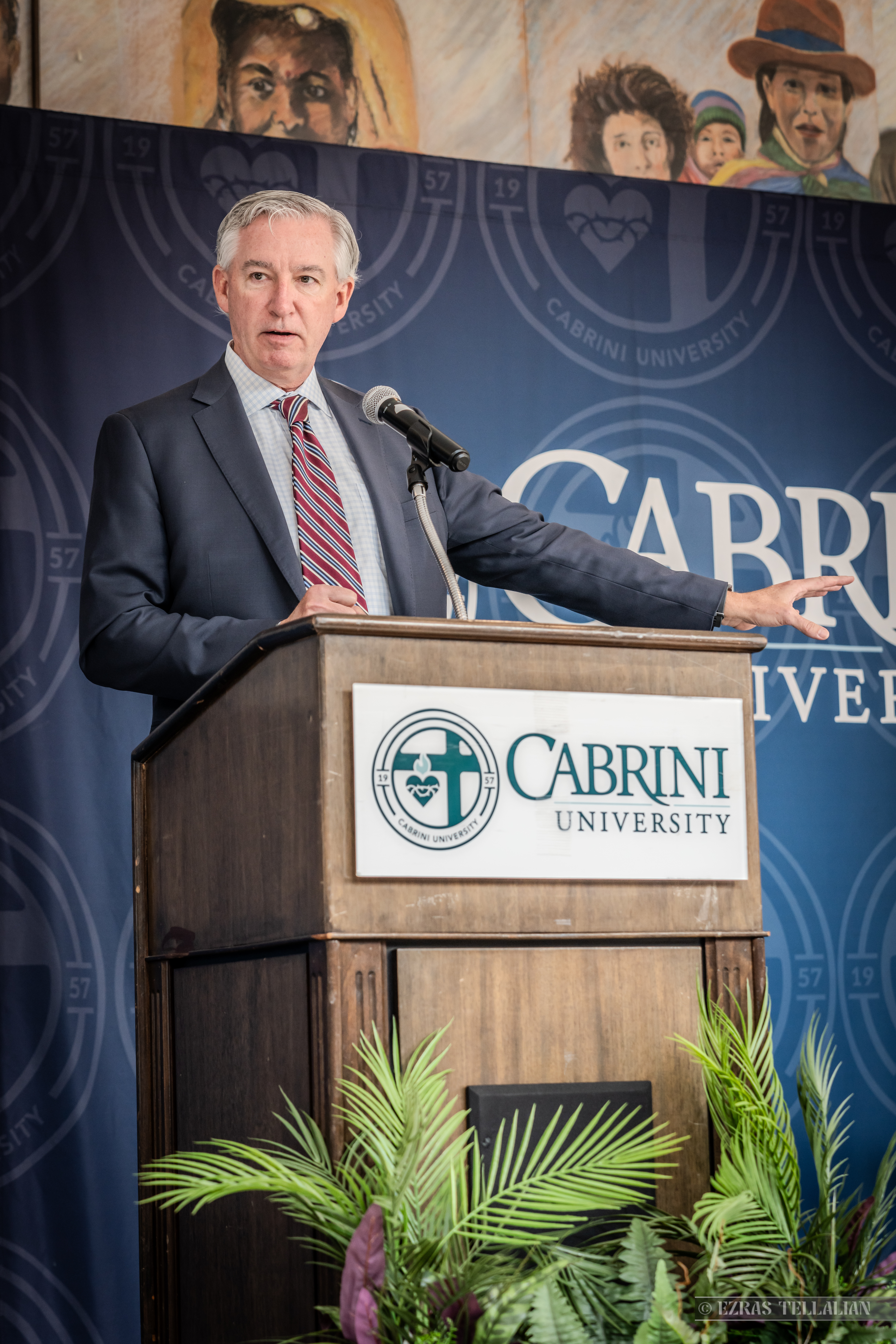
“Over the past 10 years, we calculate having educated over 1,500 pre-service and in-service students. Throw in our core curriculum, and we are now over 10,000 individuals.”
Lelli also talked about Steele’s work in helping the Jordan Center’s mission. In 2017, he approached the Jordan Center and asked if he could help draft a bill that would change the crime code to make it an additional offense for acts of domestic violence committed in front of children. The bill would go on to become PA Senate Bill 1092, which passed 49-0 on May 23, 2018.
“People have ideas, but are they supported in research?” Steele said in his speech. “That’s what the Jordan Center has been able to do, to supply that research.”
Finding solutions
Rosenthal also discussed ways to prevent and combat domestic violence. “We have evidence-based practices that educating people at all ages about healthy relationships can change their attitudes about violence and abuse,” she said. “So, we have to scale these practices up and build an evaluation so that we’re always innovating and always adapting to what we learn.”
At the federal level, action is being taken to tackle domestic violence. On May 25, 2023, the White House launched the National Plan to End Gender-Based Violence. The plan is comprised of seven sections called “pillars,” and covers issues such as prevention, online safety, and housing stability.
“We have a White House interagency group. We’re bringing all the research institutes to talk about what our metrics should look like,” Rosenthal said. “This plan is not just for the federal government. This is for local communities and states. A [college] campus could say, ‘What kind of work are we doing across these pillars?’ We have the next steps in the federal government, but it’s about all of us.”


